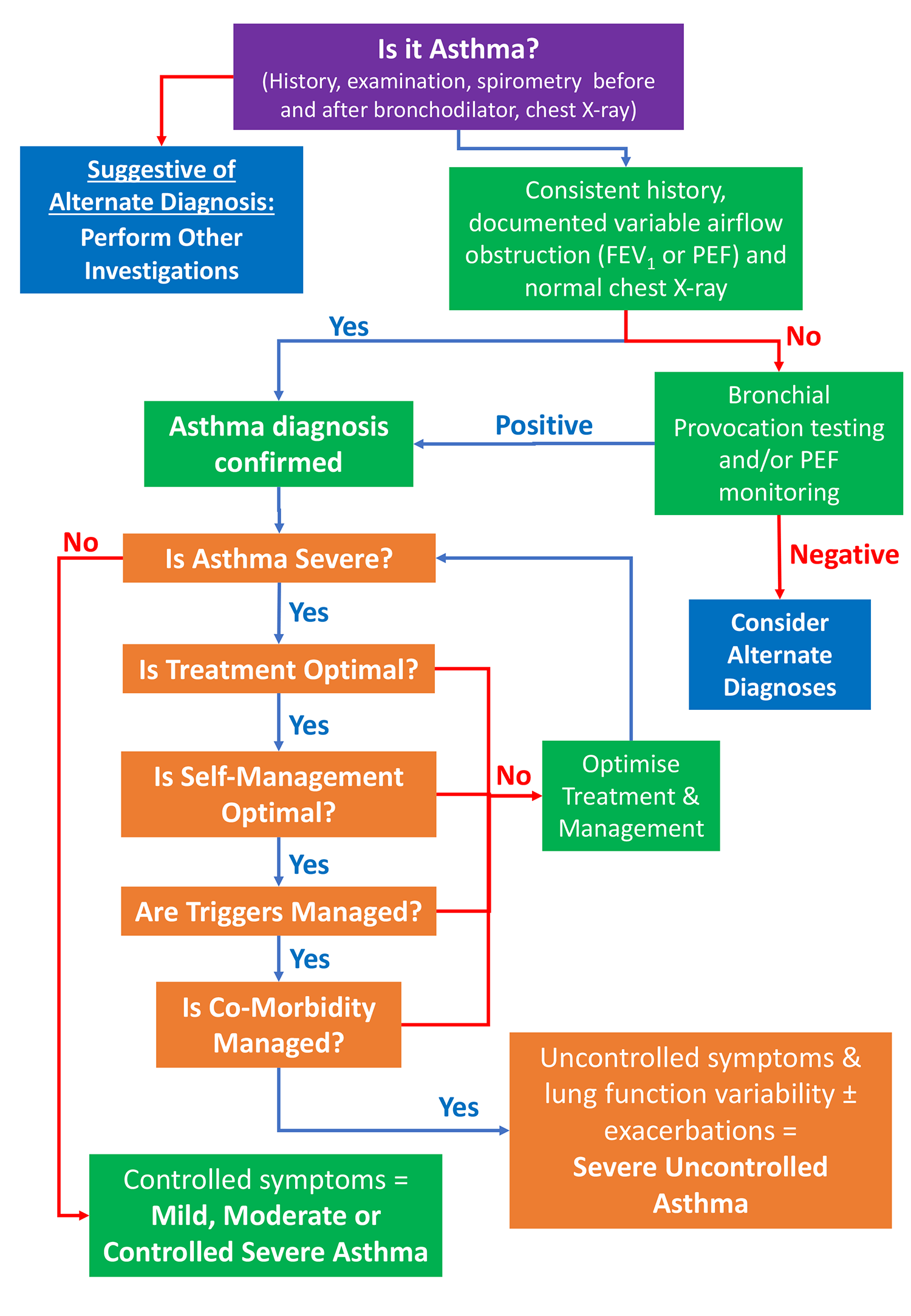Before diagnosing a person with severe asthma it is important to consider if their symptoms may be due to another medical problem or complicating factors. They may also have symptoms due to poor treatment adherence or inhaler technique.

Severe Asthma Diagnosis
Before applying a diagnosis of severe asthma, it is important to recognise:
- Some patients referred to severe asthma clinics do not have severe asthma. They may have an alternate diagnosis, or another diagnosis is influencing their symptoms
- Many patients have high symptom burden and are prescribed high-dose treatment. They do not necessarily have severe asthma but rather may have:
- Poor treatment adherence
- Poor inhaler technique
A profile of difficult to treat asthma patients referred to a Australian severe asthma clinic is available in (Radhakrishna et al. 2016)
Therefore, the first and most important questions to answer are:
- Is it asthma?
- Is the asthma severe?
The diagnostic process follows a simple schema, based on a thorough clinical assessment (not diagnostic tests).
The Centre of Excellence Severe Asthma has also developed a checklist to inform the diagnosis and characterisation of severe asthma in the clinic.
Detailed Assessment
- Fully characterising severe asthma is critically important, its value in management cannot be overstated
- Clinical characterisation (often called phenotyping), determines management and treatment strategies
- Comprehensive systematic and multidimensional assessment improves asthma outcomes (Clark et al. 2017).
Note: Results of investigations may uncover causes of uncontrollable, asthma-like symptoms. These may occur in people with severe asthma, non-severe asthma or non-asthma conditions (e.g. bronchitis, bronchiectasis, obesity, rhinitis) and provide targets for treatment (i.e. treatable traits). Therefore, a multi-dimensional assessment is a useful approach to airways disease in general.
An algorithm to guide diagnosis and assessment in individuals with suspected severe asthma.
Last Updated on


